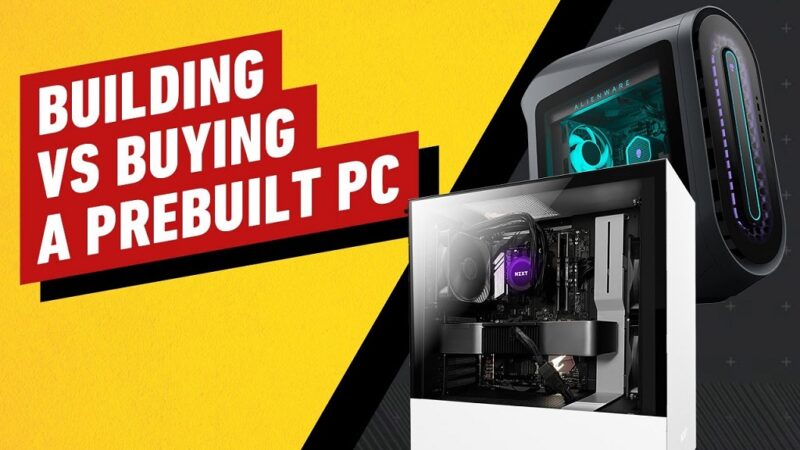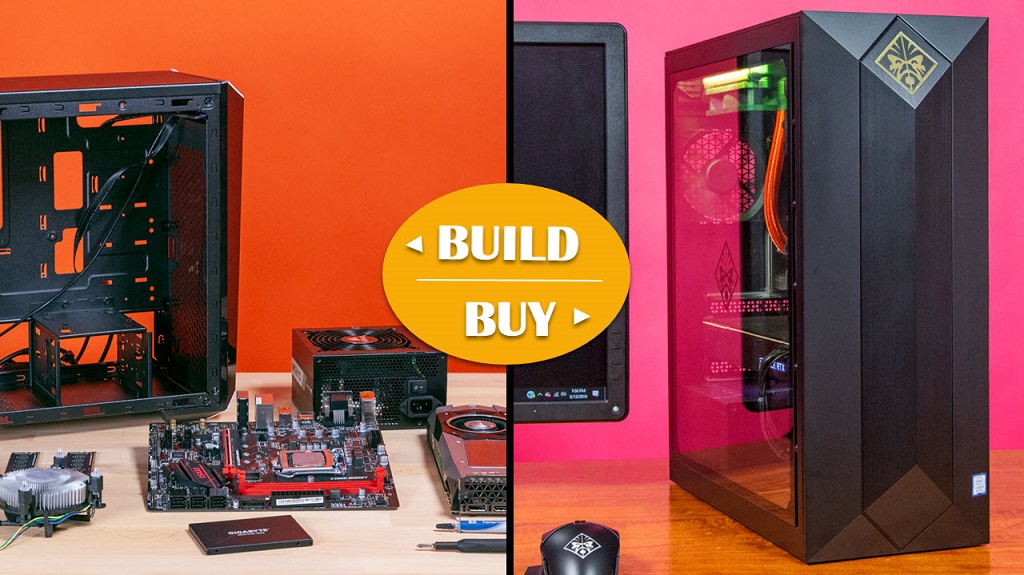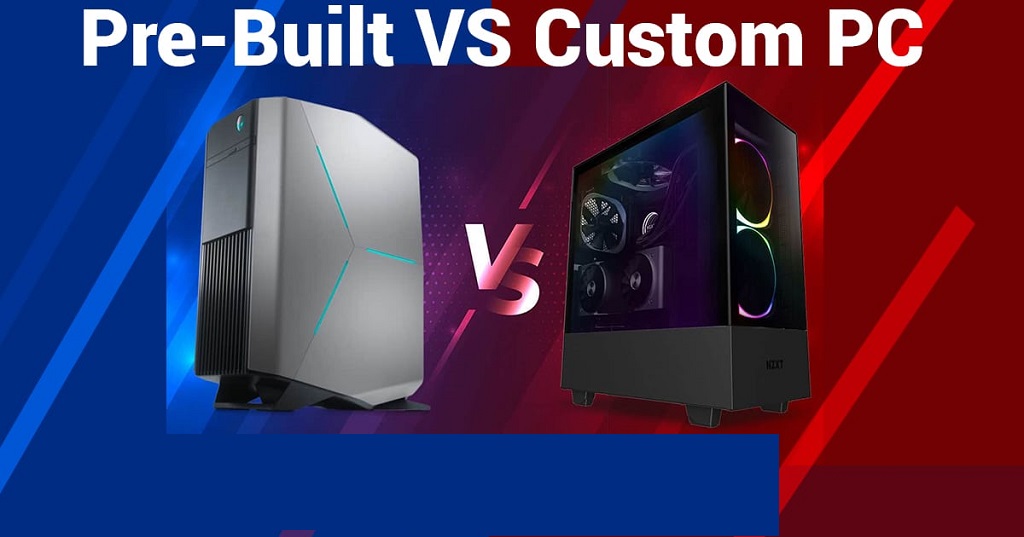Building a gaming PC can be more cost-effective than buying a pre-built one, as you have the freedom to select components within your budget. However, a pre-built system will likely be more expensive due to labor costs and compatibility testing.
When it comes to building versus buying a gaming PC, cost-cutting strategies can save you money on pre-built, custom-built, and DIY PCs. In today’s rapidly evolving gaming landscape, the decision to build or buy a gaming PC has become increasingly nuanced.
With a plethora of options available, it’s important to weigh the cost, customization, and technical aspects before making a decision. Let’s delve into the factors that should influence your choice between building a gaming PC and purchasing one, and how each option can align with your requirements and budget.
Cost Comparison
When comparing the cost of building a gaming PC versus buying one, it’s important to consider several factors that can impact overall expenses. By delving into this comparison, you can make an informed decision based on your budget and performance requirements.
Is It Cheaper To Build A Gaming PC or Buy One?
Building your gaming PC can often be more cost-effective than purchasing a pre-built system. When you build your PC, you have the flexibility to select components based on your budget, potentially saving money compared to pre-built options.
Is It Worth It To Build A Gaming Pc?
Building a gaming PC can be a worthwhile investment, especially if you have specific performance needs or want to customize your setup. While the initial cost and effort may be higher, the long-term benefits and satisfaction of owning a personalized gaming rig can outweigh any upfront expenses.
Is It Better To Get A Prebuilt PC or Build Your Own?
Choosing between a pre-built or custom-built gaming PC depends on your preferences and requirements. While pre-built PCs offer convenience and professional assembly, building your PC allows for greater customization and potential cost savings. It ultimately boils down to your priorities and budget constraints.
Customization Options
The ability to customize hardware and personalize the aesthetics of your gaming PC is a significant advantage of DIY and custom-built systems over pre-built options. Let’s take a closer look at the flexibility and benefits of these customization options.
Diy And Custom-built PCs allow More Hardware Configuration Options
When building your gaming PC, you have the freedom to select specific components tailored to your individual needs and budget. This includes the central processing unit (CPU), computer memory, motherboard, graphics card, and storage devices. Additionally, you can opt for high-quality cooling solutions, power supply units, and other peripherals that suit your preferences.
On the other hand, custom-built PCs from specialized manufacturers also present a plethora of options for hardware customization, catering to a wide spectrum of user needs and preferences. These pre-built systems often boast a broad selection of hardware configurations, enabling you to handpick components that perfectly match your gaming requirements and performance expectations. Among these components, the power supply unit (PSU) holds critical importance, and referring to a PSU cultist tier list can be a valuable step in the decision-making process. This list can help you identify the most reliable and efficient PSUs, ensuring that your custom-built PC is powered by a unit that not only supports its current hardware demands but also offers room for future upgrades. By choosing wisely, you can secure a system that delivers both outstanding performance and long-term reliability, tailored to your specific gaming or professional needs.
Whether you build your PC from scratch or customize a pre-built system, the flexibility to tailor the hardware configuration to your specific gaming needs is unmatched, providing a personalized and optimized gaming experience.
Pros And Cons Of Buying A Custom-built Pc
Pros:
- Convenience of purchasing a professionally assembled system with tailored hardware specifications
- Assurance of compatibility checks and rigorous testing conducted by experienced professionals
- Potential access to manufacturer warranties and customer support services
Cons:
- Limited scope for personal hardware selection compared to DIY builds
- Possible premium cost due to labor and testing expenses
- Reliance on the manufacturer’s design choices for system aesthetics and component layout
“` I hope you find it helpful! Let me know if you need any further assistance.
Time And Effort
When building a gaming PC versus buying one, time and effort are crucial. Building requires research, assembly, and troubleshooting, whereas buying offers convenience but can be pricier. Both options have unique benefits and challenges, so consider your needs and resources before deciding.
When it comes to building a gaming PC vs buying one, the aspect of time and effort plays a crucial role. Building your gaming PC gives you more freedom when it comes to customization, but it does take longer and requires effort. Let’s explore these factors in detail.
Building Gives You More Freedom But Takes Longer And Requires Effort
Building your gaming PC gives you the thrilling experience of being in control of every single part. From the processor to the graphics card, you can hand-pick each component to match your specific requirements and preferences.
However, this freedom comes at a cost. Building a gaming PC takes longer and requires effort on your part. You need to research and select compatible components, compare prices, and ensure each part fits perfectly together. This process can be time-consuming, especially if you are new to the world of PC building.
It’s important to note that building a gaming PC also requires a certain level of technical know-how. You need to have a good understanding of computer hardware and be comfortable with assembling the components. This might involve reading manuals, watching tutorials, and troubleshooting any potential issues that may arise.
Yet, despite the additional time and effort involved, many enthusiasts find the thrill of the build itself to be a rewarding experience. The ability to create a gaming PC from scratch, tailored to your exact specifications, can be highly satisfying.
In contrast, buying a pre-built gaming PC offers convenience and saves you time. You don’t have to worry about selecting components or assembling the system yourself. Everything comes pre-configured and ready to use right out of the box. However, this convenience comes at the sacrifice of customization.
Ultimately, whether you decide to build your gaming PC or buy one depends on your personal preferences and circumstances. If you enjoy the process of researching and hand-picking each component, are willing to invest the time and effort into building, and want the freedom of customization, then building your gaming PC may be the right choice for you. On the other hand, if convenience and saving time are a priority, buying a pre-built gaming PC might be the better option.
Initial Cost Vs Long-term Value
When it comes to deciding between building a gaming PC and buying one, considering the Initial Cost vs Long-term Value is crucial.
The initial Cost Of Building A PC is Higher Than Buying A Prebuilt Machine
Building a PC may seem costly upfront due to purchasing individual components at full price.
- Includes costs for CPU, GPU, RAM, motherboard, etc.
- Higher initial investment than buying a prebuilt system.
Purchasing Components Individually Can Be Cost-effective In The Long Run
Long-term value lies in the ability to customize components over time for enhanced performance.
- Allows for upgrading specific parts as needed.
- Potential for better performance and longevity.
Frequently Asked Questions For Building A Gaming PC Vs Buying One
Is It Cheaper To Build A Gaming PC or Buy One?
Building a gaming PC is generally cheaper than buying one due to the lower cost of components. Pre-built systems include labor and compatibility checks, making them more expensive. Building allows customization and potential cost savings. However, DIY isn’t always a guarantee of savings.
Is It Worth It To Build A Gaming Pc?
Building a gaming PC is worth it because it offers customization, higher performance, and future upgradability.
Is A $1000 Gaming Pc Worth It?
A $1000 gaming PC is worth it because it offers high performance for gaming and multitasking. It provides a great balance between cost and performance, allowing for smooth gameplay and future upgradeability.
Is It Better To Get A Prebuilt PC or Build Your Own?
It is better to build your PC as it allows for more customization options and potentially lower costs. When you buy a prebuilt PC, you’re paying for labor and compatibility checks. DIY PCs give you the freedom to fine-tune your build according to your preferences.
Conclusion
Therefore, when it comes to building a gaming PC vs buying one, there are several factors to consider. When considering the best gaming PC quality-price ratio, it’s essential to weigh the advantages of building your own system for customization and potential cost savings against the convenience and professional labor that pre-built systems offer. Ultimately, the decision depends on your budget, specifications, and personal preferences.
Whether you choose to build or buy, both options have their advantages and disadvantages. So, weigh the pros and cons carefully to make the best decision for your gaming experience. Happy gaming!



